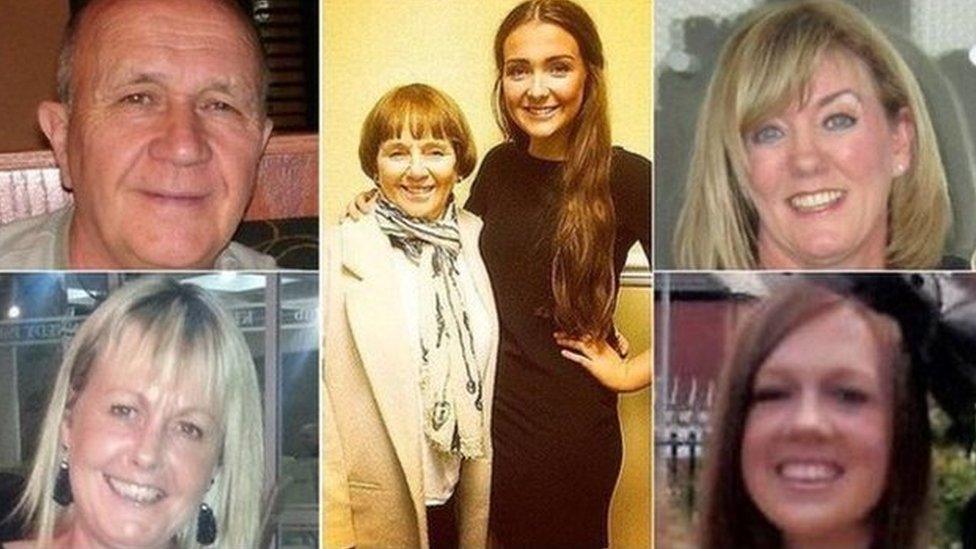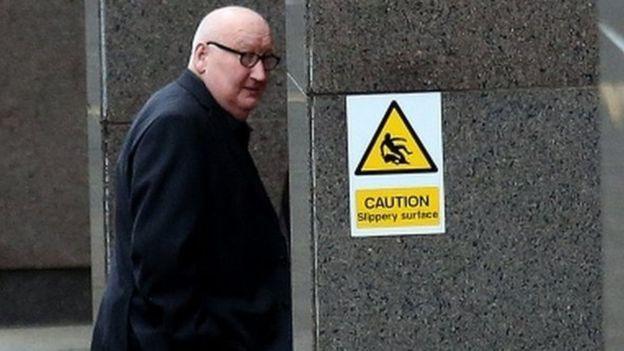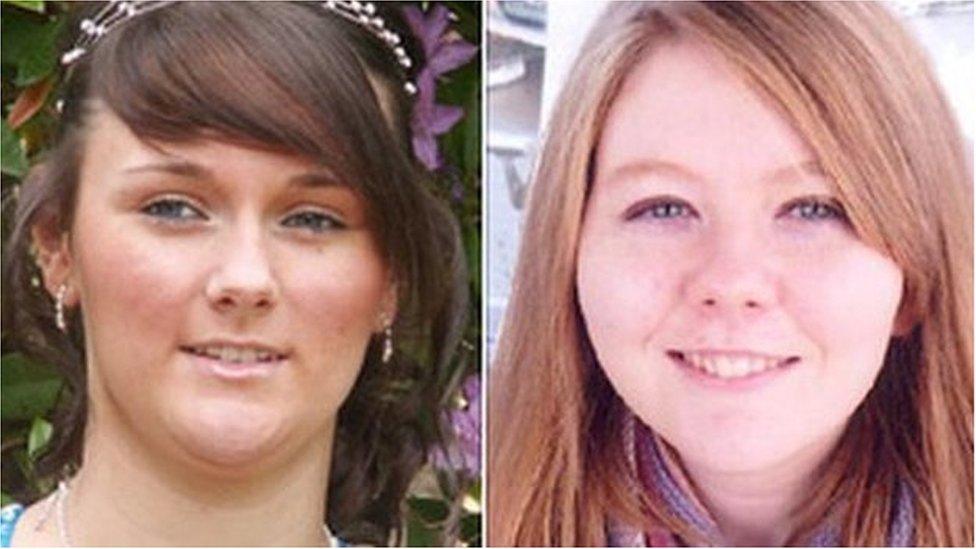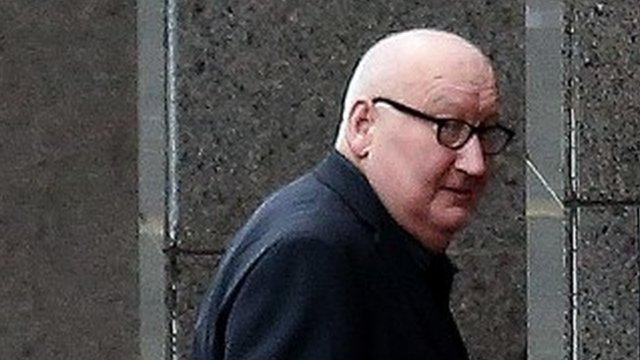Glasgow bin lorry crash prosecution ruled out
- Published

(Clockwise from top left) Jack Sweeney, Lorraine Sweeney, Erin McQuade, Jacqueline Morton, Stephenie Tait and Gillian Ewing were killed in the bin lorry crash
Families bereaved by two Glasgow road death incidents, including the 2014 bin lorry crash, have been told they cannot launch private prosecutions.
Two bereaved families had been seeking permission to bring charges against bin lorry driver Harry Clarke.
Mr Clarke was unconscious when the bin lorry veered out of control on 22 December 2014, killing six people.
Judges also ruled against a similar bid from the relatives of two students killed in a crash in 2010.
The Crown Office and Procurator Fiscal Service, which brings prosecutions in Scotland, had previously decided not to press charges in either case.
The families of victims then sought permission to bring rare private prosecutions against the drivers.

Bin lorry driver Harry Clarke lied about his medical history
Judges began hearing legal arguments at the Court of Session in September.
Those who died in the bin lorry crash were Erin McQuade, 18, her grandparents Jack Sweeney, 68, and his 69-year-old wife Lorraine, from Dumbarton, Stephenie Tait, 29, and Jacqueline Morton, 51, both from Glasgow, and Gillian Ewing, 52, from Edinburgh.
The Sweeney/McQuade families wanted Harry Clarke to be prosecuted as a fatal accident inquiry in August 2015 found the crash could have been avoided if he had not lied about his medical history.
The inquiry found that Mr Clarke, 59, who had a history of blackouts and poor health, had "repeatedly lied in order to gain and retain jobs and licences".
'Lambs to the slaughter'
This included not fully disclosing the details of a blackout he suffered at the wheel of a stationary bus in April 2010 to his own doctors and in employment applications and medical assessments for later jobs at Glasgow City Council.
It found eight reasonable precautions that could have prevented the crash. All were related to his hidden medical past.
During evidence at the inquiry, which concluded in August 2015, it emerged that Mr Clarke had suffered an episode of neurocardiogenic syncope.
He passed out at the wheel while the bin lorry was on Queen Street in Glasgow city centre, just days before Christmas 2014.
Just 19 seconds later, the vehicle came to rest against the Millennium Hotel in George Square, leaving six people dead and 17 injured.

Mhairi Convy (left) and Laura Stewart died after being hit by William Payne's car in Glasgow
The other case related to students Mhairi Convy and Laura Stewart, who were knocked down and killed in a separate crash in Glasgow in 2010.
The two women, who were aged 18 and 20, were walking in the city's North Hanover Street when a Range Rover being driven by William Payne mounted the kerb and hit them after he blacked out at the wheel.
Rejecting the appeal for private prosecutions, Lord Justice Clerk Lady Dorrian, along with Lord Menzies and Lord Drummond Young, said the Crown Office had applied the correct test on the legal requirements of charges of dangerous driving.
Lady Dorrian said: "In our view the test of exceptionality would require to show that the lord advocate's decision not to prosecute had to be viewed in the circumstances as an egregious or outrageous failure in the exercise of his public duty in the circumstances.
"It is quite difficult to conceive of circumstances in which the court would pass a bill where the lord advocate had examined and investigated the circumstances of the case and concluded as a matter of informed judgment that the whole tenor and weight of the evidence did not justify prosecution."
Laura Stewart's aunt Cate Cairney said the family had been caught up in a "brutal horror story"
Following the decision, Laura Stewart's aunt Cate Cairney said the legal system had "fatally let our girls down".
She said: "The judgment today hasn't surprised us at all - we have been expecting it to be a 'no' decision. Since Laura and Mhairi were brutally mown down by William Payne, we have found ourselves locked in a most brutal horror story.
"As average, normal families, we expected that justice would take care of itself, that the COPFS (Crown Office and Procurator Fiscal Service) would do their core job on behalf of the victims and the fight for the truth.
"Having never been exposed to any kind of criminal proceedings before, we were like lambs to the slaughter. Eyes filled with tears, broken-hearted and vulnerable to the machine that is the COPFS.
"As families who had to identify their daughters, seeing them as no people ever should, we trusted the process and we trusted the law. And this law has fatally let our girls down."
Mhairi's father Alan Convy said: "How many more innocent daughters, parents, brothers, sisters, nieces and nephews have to die before the Crown do the right thing and send out the right message to the public?
"If this ruling is the law, then the law is wrong in our eyes. It needs changed."
- Published7 December 2015
